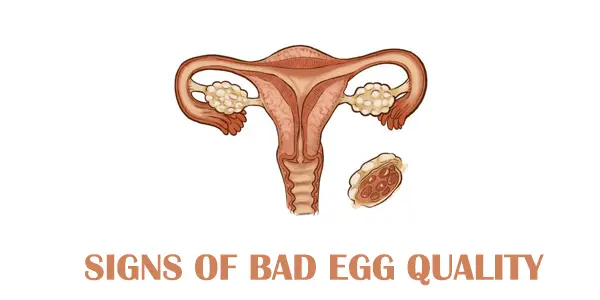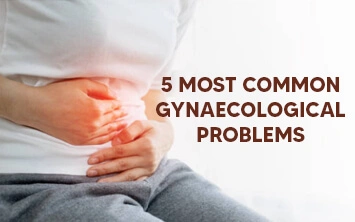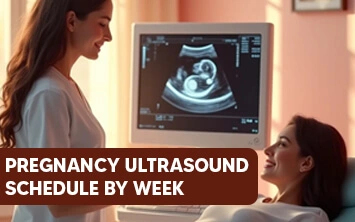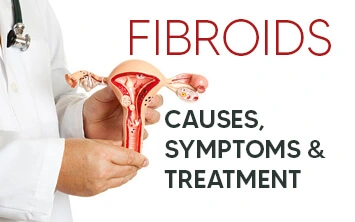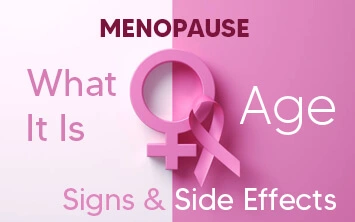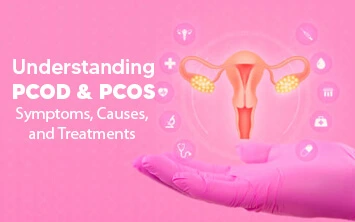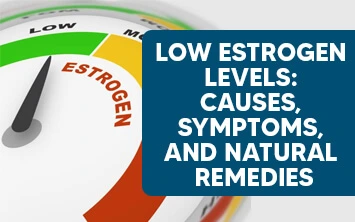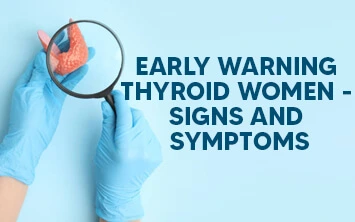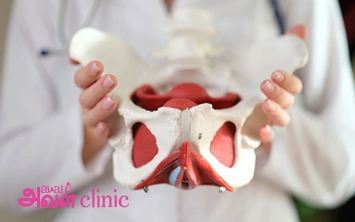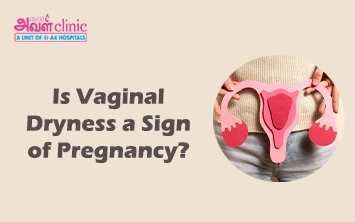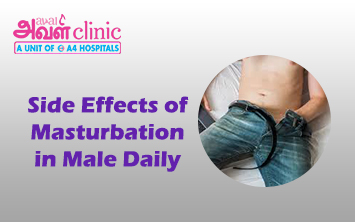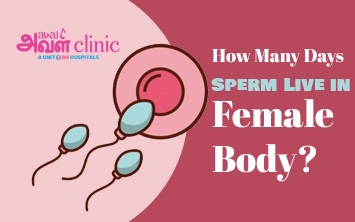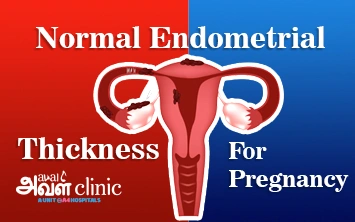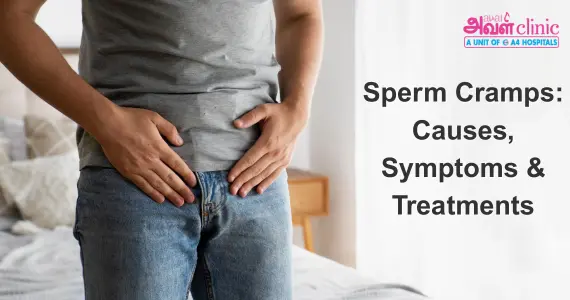Published on: February 24, 2025
Author: Admin
A female egg is a reproductive cell, otherwise known as an ovum. An ovum is released by ovaries during the ovulation period. These cells or eggs can either get dissolved as a part of the menstrual cycle or fertilized by sperm and cause pregnancy.
The pregnancy happens when a woman has eggs that are of high quality. What if they lack quality?
Female fertility is significantly influenced by the woman’s egg quality, which helps in increasing the possibility of conception. Whereas, poor-quality eggs are directly associated with female infertility, causing difficulty in getting pregnant.
Several factors affect the quality of the egg including age, genetics, certain medical conditions like endometriosis and PCOS, consumption of alcohol, smoking and so on.
If you are concerned about getting pregnant, and noticing the signs of bad egg quality including irregular periods, and recurrent miscarriages, it is highly recommended to consult a reputed physician. They can help with suggesting potential strategies to enhance the quality of the eggs through lifestyle changes and medications.
Signs of Bad Egg Quality
As women age, the quality of the egg declines. Apart from ageing, there are other symptoms that are associated with infertility in women.
Listed below are the most general signs of poor egg quality in females.
- Abnormal Chromosomal Count
- Low FSH Reserves
- Low Levels of AMH
- Low Levels of Estradiol
- Diminished Ovarian Reserve
- Miscarriages
- Abnormal Menstrual Cycle
Abnormal chromosomal count
A zygote is a new cell that is developed when a sperm and ovum are fertilized. It eventually becomes a blastocyst before implanting into the uterus.
Technically speaking, a zygote usually has 46 chromosomes, with 23 chromosomes from the mother’s egg and 23 chromosomes from the father’s sperm. These chromosomes play a crucial role in determining the physical features and gender of the baby.
If any of the chromosomal count is not standard in number, that is more or fewer than 23, then it is considered to be abnormal. The condition is known as aneuploid egg. If a woman gets pregnant with an aneuploid egg, it results in the development of chromosomal disorders in the embryo, such as Down syndrome. Sometimes, it may also result in miscarriage or stillbirth.
Low FSH reserves
Follicle-stimulating hormone (FSH) is a significant hormone released by the pituitary gland in the brain, which is responsible for controlling ovulation. When the levels of these hormones fluctuate like producing a lower amount of FSH, it can interrupt the egg’s quality and its release from the ovaries.
This ultimately leads to a decrease in FSH reserve or a diminished ovarian reserve due to the pituitary gland's attempt to compensate by producing more follicle-stimulating hormones to stimulate egg development.
Low levels of AMH
Anti-Mullerian Hormone (AMH) is classified as a glycoprotein, which plays a key role in developing the male reproductive organs in the fetus. Low levels of AMH in a woman’s body indicate poor egg quality symptoms. This is associated with numerous reasons including age, genetics, certain medical disorders, and previous chemotherapy treatments.
Low levels of estradiol
Estradiol (E2) is a hormone, which is produced by the ovaries and is responsible for stimulating the growth of ovarian follicles and regulating the menstrual cycle. If the E2 levels are excessively too high, it contributes to the possibility of releasing premature eggs when menstruating. This indeed negatively affects the quality of the egg in women.
Diminished ovarian reserve
Diminished ovarian reserve is the condition when a woman has fewer number of follicles in her ovaries than others of her age. The condition is otherwise referred to as low ovarian reserve or low egg count. It is a well-known fact that as you age, the quality and quantity of the eggs get diminished. However, women with diminished ovarian reserve experience sooner a poor egg quality. This makes it harder for them to get pregnant naturally.
Miscarriages
Experiencing several miscarriages can be a sign of producing aneuploid eggs, which are considered abnormal eggs. Even if a woman gets pregnant with an aneuploid egg, it can either result in the development of chromosomal disorders in the embryo, such as Down syndrome or miscarriages.
Abnormal Menstrual Cycle
Abnormal menstrual cycles, such as irregular or elongated cycles may indicate the obvious sign of hormonal conditions. Changes in the levels of hormones in the woman’s body may typically impact the menstrual cycle. This contributes to the development of infertility disrupting ovulation and affecting the quality of eggs produced.
Signs of Good Egg Quality
The quality of the eggs in women plays a crucial role in being able to get pregnant. Good egg quality is associated with increased chances of successful implantation. But how will you know if your eggs are of good quality?
Listed below are some of the signs of good egg quality in women:
- Having a regular menstrual cycle with normal bleeding.
- Hormone levels are balanced.
- Ability to get pregnant quickly.
- Have no stillbirths and miscarriages.
- Experience changes in their cervical fluid.
- Experience changes in their body’s baseline temperature.
- Successful pregnancy outcomes with IUI, ICSI, or IVF.
Foods to Improve Egg Quality Naturally
Women having good quality eggs can enhance the possibility of getting a successful pregnancy. Hence, it is always important to focus on the egg quality when it comes to treating infertility.
Listed below are some of the foods and diet plans that help with improving the quality of poor eggs in women.
Diet
- Include fruits and vegetables.
- Include whole grains like oats, brown rice, and wholemeal bread.
- Include healthy fats like nuts, fish, seeds, and vegetable oils.
- Include lean meats.
- Include antioxidant-rich foods like spinach, broccoli, berries, and bell peppers.
- Include foods that are rich in omega-3 fatty acids like fish and nuts.
- Include foods that are rich in vitamins B, E, and D and minerals like selenium and zinc.
- Avoid processed foods and sugar.
Stress management
- Do mindfulness, meditation, and self-care.
- Journaling.
- Talking to the close ones.
Exercise
- Exercise regularly. Avoid doing heavy workouts, if fertility is your concern.
- Get enough sleep.
Lifestyle changes
- Quit smoking and alcohol consumption.
- Limit the consumption of caffeine.
- Maintain a healthy weight.
- Avoid toxins like dry-cleaning solvents, pesticides, and lead.
Need expert advice? Consult our doctors now!
Call Now: 80047 80048Fertility Treatments to Help Improve Egg Quality
There are numerous advanced methods to enhance egg quality. They are:
- In Vitro Fertilisation (IVF)
- Intrauterine Insemination (IUI)
- Fertility medication
- Lifestyle modifications
- Surgical procedures
How the Quality of the Egg is Measured?
We have understood what causes poor egg quality in the previous section. Now, let’s discuss how the quality of the eggs is measured.
Ovarian reserve testing is the method used to analyse the remaining quantity of eggs in women. The method does not analyse its quality. The healthcare professionals use the test to determine the fertility potential of the women by comparing them with others of her age.
Ovarian reserve testing includes:
- Follicle-stimulating hormone (FSH)
- Anti-Mullerian Hormone (AMH)
- Antral Follicle Count (AFC)
Follicle-stimulating hormone (FSH)
The brain releases gonadotropin-releasing hormone (GnRH), which signals the pituitary gland to release sexual development hormones into the bloodstream, namely follicle-stimulating hormone (FSH) and luteinizing hormone (LH). Follicle-Stimulating Hormone (FSH) and luteinizing hormone (LH) can be found in both men and women.
In general, these two hormones are responsible for stimulating ovaries and testes to produce hormones that help with sexual development and reproduction.
To check the efficiency of FSH, your physician might do some blood or urine tests that determine the measurement of testosterone, LH, and estradiol in your body. The test is helpful for physicians to assess testicular function in men and reserved eggs in women. The FSH test is also helpful to evaluate medical conditions including irregular periods, menopause and early puberty.
Normal FSH levels in women may generally range between 4.7 and 21.5 mIU/mL, whereas in men, the normal range may vary between 1.5 and 12.4 mIU/mL. However, these levels differ based on age and other factors.
Anti-Mullerian Hormone (AMH)
An anti-Müllerian hormone (AMH) test is performed to determine the level of AMH in the blood. AMH can be found in both men and women, but it is most often used to analyse female reproductive health.
An AMH test is used by physicians to analyse:
- The number of reserved eggs in women.
- The ability of your body's response to fertility treatments.
- Whether you are nearing or already experiencing menopause.
- A condition with the ovaries including PCOS and ovarian cancer.
The normal range of AMH in women may range between 1.0 and 4.0 ng/mL. Whereas in men, the normal range may vary between 1.5 and 4.0 ng/mL. However, these levels differ based on age and other factors.
Antral Follicle Count (AFC)
An antral follicle count (AFC) is typically an ultrasound scan, which is primarily used to determine the number of existing eggs in ovaries. The scan is most often used to analyse the female reproductive health and the number of reserved eggs in women.
The normal range of AFC in women may range between 3 and 30 follicles. However, these levels differ based on age and genetics.

